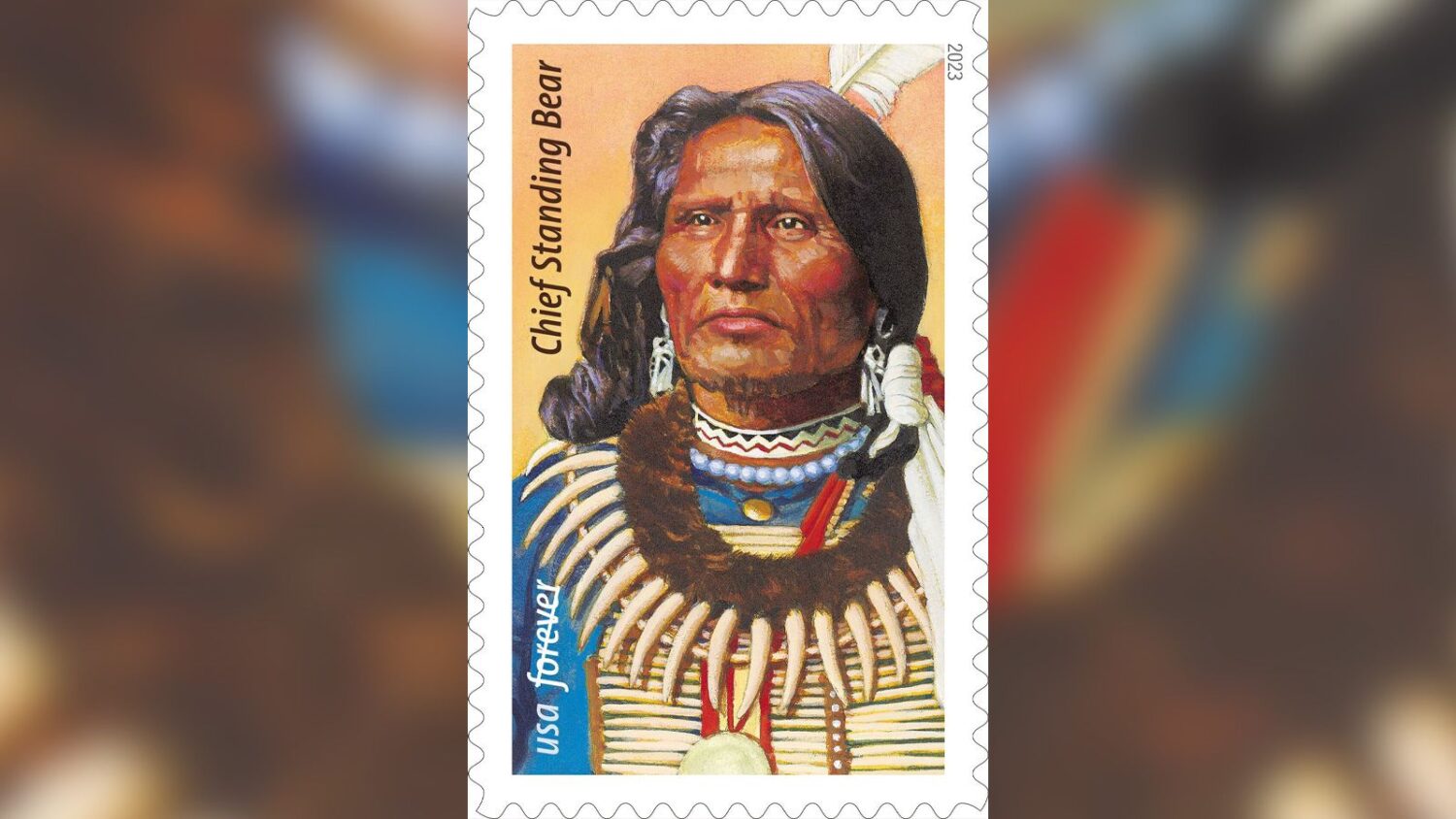
By Harmeet Kaur, CNN
(CNN) — The US Postal Service is honoring Chief Standing Bear, the celebrated Ponca leader who successfully argued for Native Americans to be recognized as people in the eyes of the law, on a Forever stamp.
The stamp, which features a portrait of Chief Standing Bear by illustrator Thomas Blackshear II, was unveiled last week at a ceremony in Lincoln, Nebraska.
“Although the United States was founded on the principle that ‘all men are created equal,’ it took our country far too long to recognize the humanity in many of its people – including the American Indians who lived in these lands for thousands of years,” Anton G. Hajjar, vice chairman of the USPS Board of Governors, said in a statement. “I hope this stamp will serve as a reminder of the lessons we’ve learned from Chief Standing Bear, and the brave Ponca people, especially here in the Cornhusker State.”
Chief Standing Bear was a leader of the Ponca people in the late 1800s. The Ponca people inhabited the area near the Niobrara River in what’s now northeastern Nebraska until 1877, when the federal government forced them to leave their homeland for “Indian Territory” (present-day Oklahoma).
The journey was arduous and many of the Ponca people, including Standing Bear’s daughter Prairie Flower, died along the way, according to the Library of Congress blog. Others, such as the chief’s oldest son Bear Shield, died upon arrival in Oklahoma. Standing Bear wanted to bury his son in his homeland, but when he and other members of the Ponca tribe started traveling back to do so, they were ultimately blocked by the federal government. Under the orders of the Department of the Interior, US Army Gen. George Crook arrested and incarcerated Chief Standing Bear and other tribal members, per the Library of Congress blog.
In 1879, a newspaper editor interviewed Chief Standing Bear while in detention, and the story of his plight gained national attention, according to the Oklahoma Historical Society. Lawyers agreed to take up his case and petitioned a federal court to prevent Standing Bear and his fellow tribe members from being returned to “Indian Territory,” arguing that they were being unlawfully detained.
In a now landmark civil rights case known as Standing Bear v. Crook, the US government argued that Standing Bear was neither a citizen nor a person under the law, and therefore could not sue the government.
Citing the 14th Amendment, Standing Bear’s lawyers argued that the Ponca people were entitled to the same constitutional rights as other US citizens, according to the Library of Congress blog.
In a speech before the court, Chief Standing Bear said through an interpreter, “That hand is not the color of yours, but if I pierce it, I shall feel pain. If you pierce your hand, you also feel pain. The blood that will flow from mine will be of the same color as yours. I am a man. The same God made us both.” The words are inscribed at the base of a statue that now stands in the US Capitol.
A federal judge ultimately sided with Standing Bear, ruling that Native Americans were people under US law and ordering the chief and his people to be released from detention. After they were released from federal custody, Standing Bear and some tribe members returned to their homelands in Nebraska, though others remained in Oklahoma.
“It’s remarkable, that the story of Nebraska Native American civil rights leader Chief Standing Bear has progressed from a native man being considered a non-person by the U.S. Government in 1879, to today, being recognized by the Postal Service with a stamp honoring him as an American icon,” Judi M. gaiashkibos, executive director of the Nebraska Commission on Indian Affairs, said in a statement. “This story of an indigenous rights hero is truly and necessarily an American story. This stamp further etches his legacy in our national consciousness and provokes necessary conversations about race, sovereignty and equality in the United States.”
The-CNN-Wire
™ & © 2023 Cable News Network, Inc., a Warner Bros. Discovery Company. All rights reserved.



